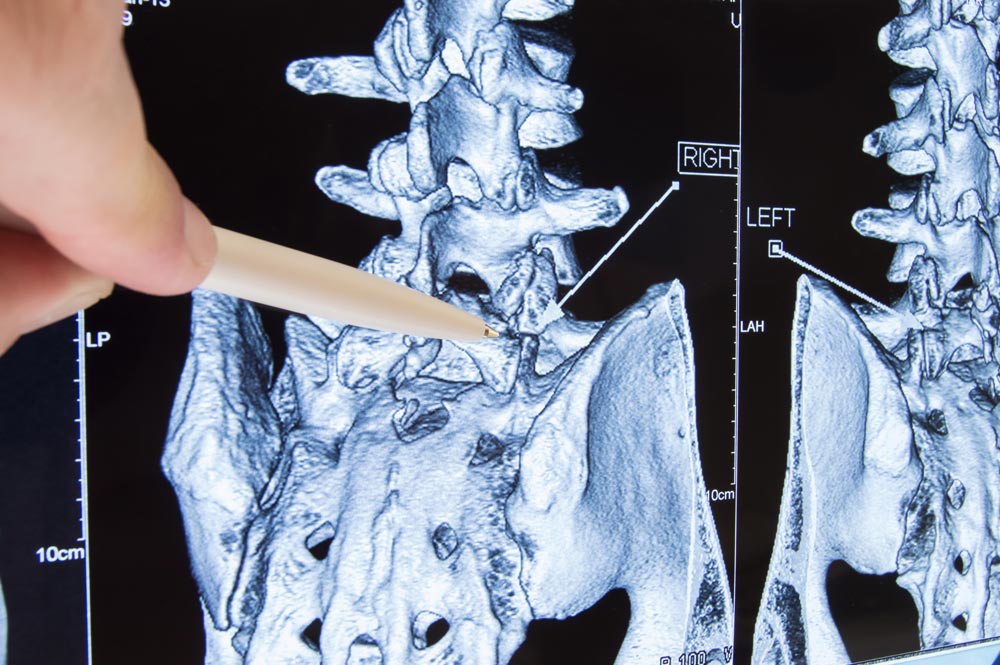Radiculopathy, sometimes called a pinched nerve, refers to a painful condition that occurs when one or more nerves surrounding the spine become compressed.


When pressure is put on a nerve root in or near the spinal column, whether from injury or age-related wear and tear, the pain that radiates from the pinched nerve is categorized as a condition called radiculopathy. Nerve roots live within the spinal column and travel throughout our entire bodies, so depending on the location along the spine where the nerve is compressed, radiculopathy-related pain can occur in the neck, back, arms or legs.
Given that the pinched nerve roots can occur anywhere along the spine, radiculopathy can be refined by different regions: neck (Cervical Radiculopathy), upper back (Thoracic Radiculopathy), and lower back (Lumbar Radiculopathy).
Radiculopathy pain and symptoms can be characterized as numbness, weakness, and pain in the neck, upper back, and lower back as well as potentially spreading out to the arms and legs. Spine conditions, such as bone spurs, scoliosis, sciatica and herniated discs can all be linked to radiculopathy. Because radiculopathy is connected to so many other spine conditions, it is important to share your full medical history with Dr. Bruggeman for the most accurate evaluation.
A full examination can include X-Rays, MRI scans, or CT scans. Understanding the extent of a diagnosis will determine the best pain treatment plan.
Starting with a clear understanding of the extent of symptoms and all the pain points on the body, especially those beyond the neck and back, will help Dr. Bruggeman hone in on the location of the pinched nerve root. Any other pre-existing spine conditions can also influence the recommended course of action. While conservative measures like physical therapy, medications, or spinal injections may relieve the pain temporarily, if left untreated the nerve compression can get progressively worse over time.
Depending on the location of the affected nerve, Dr. Bruggeman may recommend minimally invasive surgical procedures like a foraminotomy, laminectomy, or discectomy. Some radiculopathy patients may be a candidate for disc replacement or fusion as well. A full evaluation from Dr. Bruggeman is necessary for a proper treatment plan and to prevent worsening symptoms or subsequent conditions from developing.
Take the first step toward a pain-free life. Use our online pain evaluation tool to determine what treatment may be right for you.